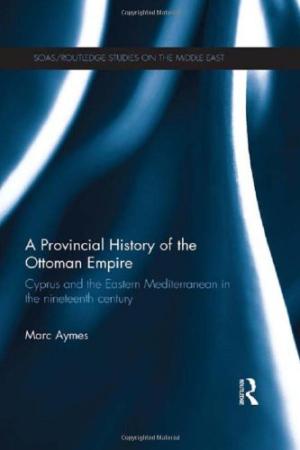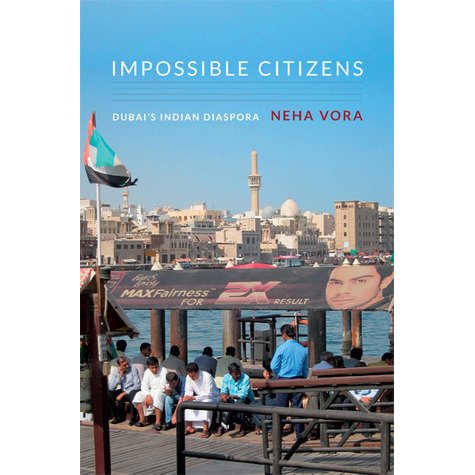-
 Add to cartQuick view
Add to cartQuick viewMaktoob in Action
Free!Add to cartQuick view -
Add to cartQuick view
Marc Aymes. A Provincial History of the Ottoman Empire: Cyprus and the Eastern Mediterranean in the Nineteenth Century. Oxon: Routledge, 2013. 240 pp.
Marc Aymes. A Provincial History of the Ottoman Empire: Cyprus and the Eastern Mediterranean in the Nineteenth Century. Oxon: Routledge, 2013. 240 pp.
$5.00Free!Add to cartQuick view -
Add to cartQuick view
Marvine Howe. Al-Andalus Rediscovered: Iberia’s New Muslims. London: Hurst, 2012. 289 pp.
Marvine Howe. Al-Andalus Rediscovered: Iberia’s New Muslims. London: Hurst, 2012. 289 pp.
$5.00Free!Add to cartQuick view -
Add to cartQuick view
Miriam Cooke. Tribal Modern: Branding New Nations in the Arab Gulf and Frederic M. Wehrey. Sectarian Politics in the Gulf
Miriam Cooke. Tribal Modern: Branding New Nations in the Arab Gulf and Frederic M. Wehrey. Sectarian Politics in the Gulf
$5.00Free!Add to cartQuick view -
Add to cartQuick view
Musicians between the Hegemonies
Inbal Perlson
$5.00Free!Add to cartQuick view -
Add to cartQuick view
Musicians between the Hegemonies: A Response
Martin Stokes
$5.00Free!Add to cartQuick view -
Add to cartQuick view
Names under Supervision: Israeli Linguistic Regulation of Arab Streets – Turʿan as a Case Study
Free!The present article contributes to the local study of street signs, and more generally, of majority and minority language representation. It analyzes the street signs set up by the Turʿan municipality in the North of Israel during the term of the town’s Jewish mayor Yaakov Zohar (2008-2013), shedding light on the impact of top-down political processes on the design of Arab space, its interpretation by a municipality headed by an agent of the establishment, and the namings’ implications for the Arab minority’s spatial socialization. Through the names selected and the visual and orthographic characteristics of the linguistic landscape, the article highlights the politics of shaping cultural and historical identity in physical space. The visual characteristics examined are related to the visibility of the two languages—Arabic and Hebrew—or more specifically, to the representation of one as opposed to the deliberate marginalization of the other. My reading of street signs is informed by critical toponymy and semiotics, which emphasize the ideological meanings inherent in the depth structures of names and visual communication products. I consider the initiative by a Jewish mayor to name the streets of Arab Turʿan an attempt to influence the spatial awareness of its Arab inhabitants in keeping with the values of the establishment.
Add to cartQuick view -
Add to cartQuick view
Neha Vora. Impossible Citizens: Dubai’s Indian Diaspora Durham: Duke University Press, 2013. 264 pp.
Neha Vora. Impossible Citizens: Dubai’s Indian Diaspora
Durham: Duke University Press, 2013. 264 pp.$5.00Free!Add to cartQuick view -
Add to cartQuick view
Of Vines, Fig Trees and the Ashes of Bigotry
Free!In 1790 the head of the Jewish Congregation of Newport, Rhode Island, approached George Washington, the first president of the new United States, leading to an exchange of letters between Moses Seixas (1744–1809), warden of the Newport Community, and Washington. This essay begins with an analysis of the biblical context of the exchange between the two, which provided the background for Washington’s beautiful statement on the freedoms that an exilic minority people could hope for. In his reply to Seixas, Washington invoked the powerful biblical image of the vine and the fig tree in his words of assurance to the Jewish community. Reconstructing this context helps to clarify questions regarding the boundaries within which such a people can operate as a distinct group. I show that the original context within which the phrase about a vine and fig tree is expressed was in effect a contract between the sovereign and the ruled.
Later in this essay, I turn to an instance of a new sovereign breaking his promise right after assuming power. Having received assurances of religious tolerance from Isabella I of Castile and Ferdinand II of Aragon, King Boabdil, the last sultan of the kingdom of Granada, surrendered to the Reyes Católicos. This understanding, however, did not last.
Against the backdrop of the Spanish Inquisition that ensued, I discuss the theme of book burning through history. Such events, I argue, present the exact opposite of what Washington argued for in his letter: they highlight the connection between religious intolerance and violence. Reflecting on book burnings gives us an opportunity to explore the processes of the destruction of one culture and the creation of a new one on its ruins.Add to cartQuick view -
Subscribe NowQuick view
Private: Online Individual Subscription
$60.00 for 1 yearSubscribe NowQuick view
- Home
- About JLS
- Issues
- Vol. 9 No. 1 | Summer 2019
- Vol 8 No 2 Winter 2018
- Vol. 8, No. 1: Summer 2018
- Vol. 7, No. 2: Winter 2017
- Vol. 7, 1: Summer 2017
- Vol. 6, Summer/Winter 2016
- Vol. 5, No. 2 Winter 2015
- Vol. 5, No. 1 Summer 2015
- Vol. 4, No. 2 Winter 2014
- Vol. 4, No. 1 Summer 2014
- Vol. 3, No. 2 Winter 2013
- Vol. 3, No. 1 Summer 2013
- Vol. 2, No. 2 Winter 2012
- Vol. 2, No. 1 Summer 2012
- Vol. 1, No. 2 Winter 2011
- Vol. 1, No. 1 Summer 2011
- Blog
- dock-uments
- Subscribe
- Submit
- Contact






